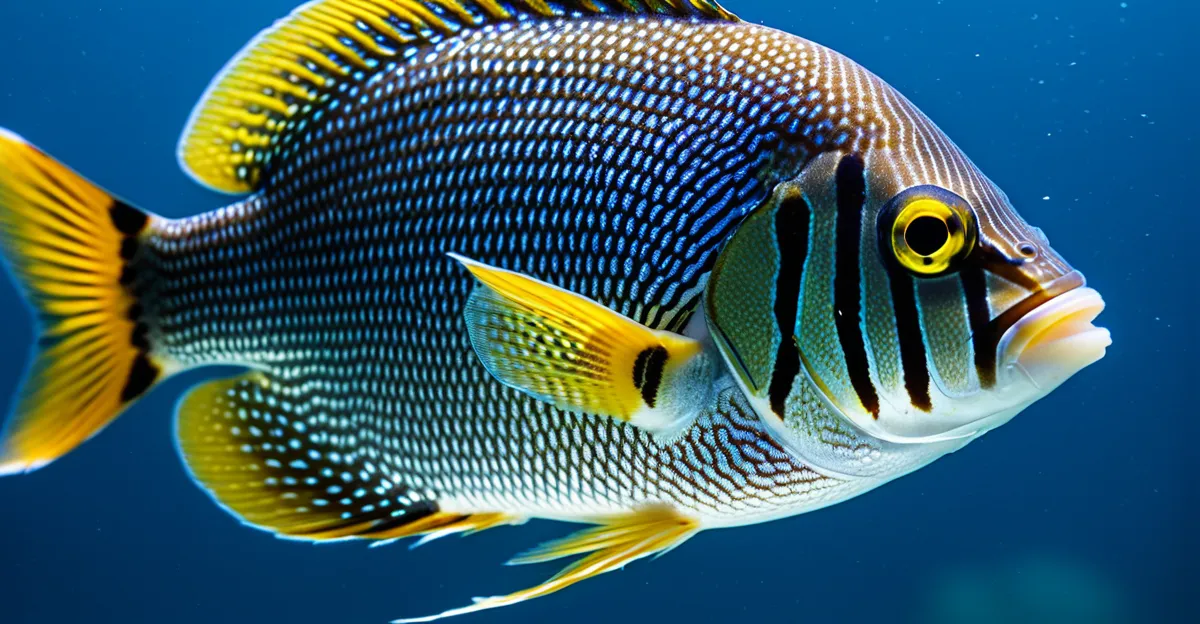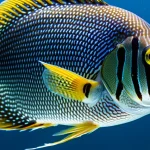Recognising Signs of Illness in Exotic Fish
Early detection of symptoms of sick fish is crucial for maintaining good exotic fish health. Owners should closely observe their aquarium fish for any visual indicators of health problems. Common signs include noticeable colour changes, which can range from dullness to unnatural dark spots. Lesions or fin damage such as ragged edges or fraying often indicate bacterial or fungal infections. Additionally, skin ulcers or white patches may be a sign of parasitic infestations.
Behavioural changes also provide essential clues in identifying illness in aquarium fish. A sick fish might exhibit lethargy, spending more time inactive or hiding. Erratic swimming patterns, such as darting or crashing against tank surfaces, suggest distress or neurological issues. Another common symptom is a loss of appetite, which can lead to rapid weight loss and weakened immunity.
Have you seen this : What Are the Most Unusual Pets That Can Live in the UK?
In the context of UK pet fish care, recognising these signs early allows for prompt intervention, greatly improving the chance of recovery. Regular daily observation is recommended, as some symptoms can develop subtly. By understanding these symptoms of sick fish, owners empower themselves to act swiftly, ensuring their exotic fish remain healthy and vibrant.
Health Issues in Popular UK-Specific Exotic Fish Species
Exotic fish species UK enthusiasts often keep include discus, angelfish, and various species of cichlids. These exotic fish species UK hobbyists choose offer vibrant colors but also present unique health challenges. Understanding these vulnerabilities is essential for maintaining their wellbeing.
In parallel : How Can You Create a Safe Habitat for Exotic Pets at Home?
Among the common fish illnesses UK reports, parasitic infections like ich (Ichthyophthirius multifiliis) and bacterial diseases such as fin rot are prevalent in tropical species. These ailments thrive in improperly maintained water conditions, a typical issue in home aquariums. For example, discus fish are particularly sensitive to water quality and prone to hole-in-the-head disease.
Legal considerations for exotic fish owners in the UK center on compliance with the Animal Welfare Act 2006, which mandates appropriate care, including disease prevention. Additionally, some exotic species have restrictions to prevent ecological disruption if released. Ensuring health management aligns with legal considerations exotic pets safeguards both the fish’s welfare and the owner’s responsibilities.
Proper quarantine procedures before introducing new exotic fish species UK can significantly reduce the spread of illnesses. Awareness of species-specific vulnerabilities and regulations helps hobbyists foster a healthy, sustainable environment for these captivating aquatic pets.
Home Assessment and Initial Care Steps
Conducting a home fish health check is critical for early detection of problems. Begin by observing your fish closely: look for changes in behavior, color, or appetite. These signs often indicate an underlying issue. Simultaneously, perform water testing to check key parameters like ammonia, nitrite, nitrate, pH, and temperature. Poor water quality is a frequent cause of fish stress and illness.
If your observation or water testing raises concerns, proceed to fish illness diagnosis by noting specific symptoms such as lethargy, clamped fins, or unusual spots. Accurate symptom identification helps target the problem swiftly.
Next, implement first aid for sick fish by preparing a quarantine tank. Isolating the affected fish reduces stress and prevents the spread of infection. Ensure the quarantine environment mimics the main tank’s water conditions to avoid further shock.
Regularly monitor the isolated fish, adjusting water parameters and administering treatments as needed. Remember, prompt action in the home fish health check and quarantine can halt deterioration, improving chances for recovery. Use resources from trusted sources on fish health if uncertain about the diagnosis or treatment steps.
When and How to Seek Professional Veterinary Help
Recognizing signs to consult a vet is essential for your exotic fish’s health. Immediate veterinary attention is crucial if your fish shows sudden lethargy, loss of appetite, erratic swimming, visible wounds, swollen body parts, or unusual discoloration. These symptoms often indicate serious conditions that require emergency fish care.
Finding an exotic fish vet UK specialist can be challenging but is vital for accurate diagnosis and treatment. Look for veterinarians with experience in aquatic species and verify their credentials. Many UK clinics now list exotic fish as part of their expertise, ensuring your pet receives specialized care rather than general treatment.
During a veterinary consultation, expect a thorough examination of your fish, including water quality assessment and a review of tank conditions. The vet may perform diagnostic tests such as skin scrapings or water cultures. They’ll also discuss your fish’s behavior, diet, and environment to pinpoint underlying issues. Treatment plans vary from medication prescriptions to advice on tank management. Scheduling regular check-ups can prevent emergencies and maintain your fish’s wellbeing, minimizing the need for urgent intervention.
Acknowledging when to seek professional help and locating a qualified exotic fish vet UK ensures timely, effective care, protecting your aquatic companion from potentially life-threatening problems.
Accessing Expert Resources and Support in the UK
When it comes to UK exotic fish health resources, tapping into national organisations and helplines can be invaluable. These dedicated fish health helplines offer tailored advice for specific problems, providing quick and accurate support. If you’re facing an issue with your tropical or exotic fish, calling such helplines ensures you receive expert input based on the latest veterinary and aquarium science.
Local aquarium societies are another excellent resource. These groups often have experienced members familiar with species common to the UK hobbyist community. They provide not only diagnostic help but also recommendations on best care practices and treatment options. Being part of a local aquarium society can connect you to a network ready to assist, making fish health management feel less daunting.
Additionally, numerous credible online resources cater specifically to the UK fish-keeping scene. These platforms provide extensive guides, forums, and articles that detail common exotic fish health issues and their solutions. Combining advice from authoritative sources with consultations from fish health helplines or local societies creates a comprehensive support system for any enthusiast. This layered approach ensures you are well-informed and confident in maintaining the health of your exotic aquatic pets.




